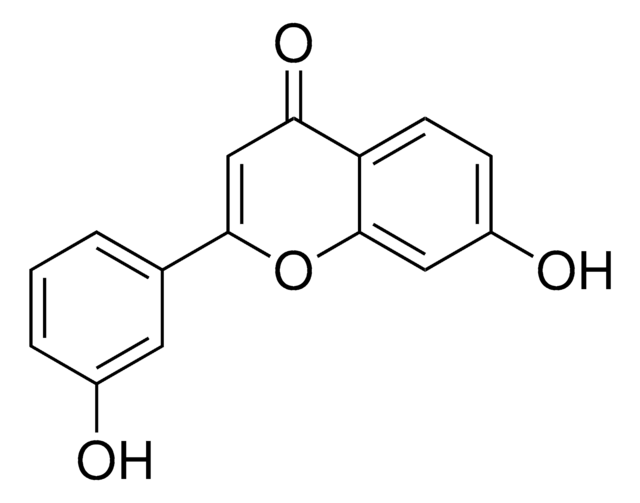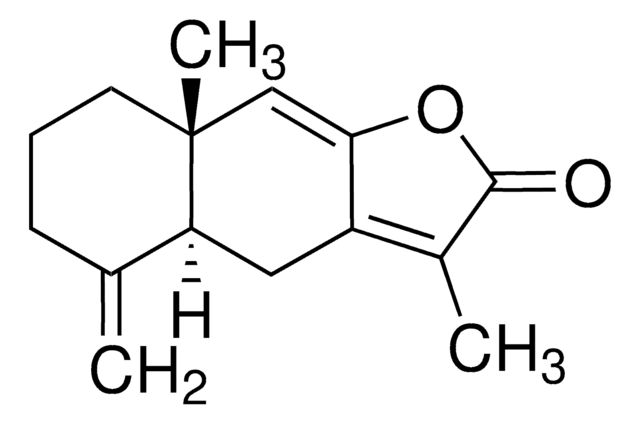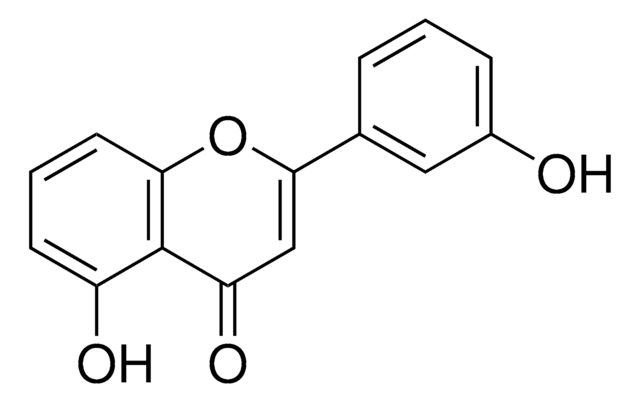A2987
Atractylenolide III
≥98% (HPLC)
Synonym(s):
8β-Hydroxyasterolide, Codonolactone
About This Item
Recommended Products
biological source
Atractylodes macrocephala Koidz.
Quality Level
Assay
≥98% (HPLC)
form
powder or crystals
color
white to off-white
solubility
methanol: 1 mg/mL, clear, colorless
application(s)
metabolomics
vitamins, nutraceuticals, and natural products
storage temp.
2-8°C
SMILES string
CC1=C2C[C@H]3C(=C)CCC[C@]3(C)C[C@]2(O)OC1=O
InChI
1S/C15H20O3/c1-9-5-4-6-14(3)8-15(17)12(7-11(9)14)10(2)13(16)18-15/h11,17H,1,4-8H2,2-3H3/t11-,14+,15-/m0/s1
InChI key
FBMORZZOJSDNRQ-GLQYFDAESA-N
Looking for similar products? Visit Product Comparison Guide
General description
Application
Biochem/physiol Actions
Storage Class Code
11 - Combustible Solids
WGK
WGK 3
Flash Point(F)
Not applicable
Flash Point(C)
Not applicable
Choose from one of the most recent versions:
Already Own This Product?
Find documentation for the products that you have recently purchased in the Document Library.
Our team of scientists has experience in all areas of research including Life Science, Material Science, Chemical Synthesis, Chromatography, Analytical and many others.
Contact Technical Service








